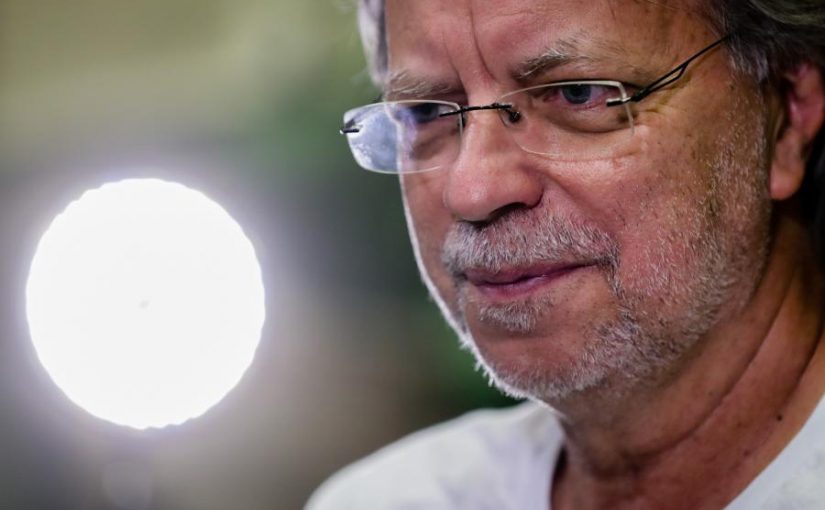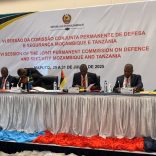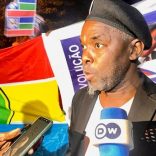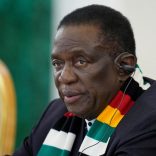Mozambique: Promotions to resume in public administration
Mia Couto calls for a more inclusive dialogue in Mozambique after general elections

File photo: Lusa
Mozambican writer Mia Couto said in Lisbon that the current process of the Inclusive National Dialogue in Mozambique is a positive sign, arguing that it needs to be made closer to citizens, one year after the country’s general elections.
Speaking on the sidelines of the conference “50 Years of Mozambican Literature: Paths and Creative Practices” at the Calouste Gulbenkian Foundation, the author told Lusa that, although Mozambique is experiencing a period of relative calm after the post-election protests of 2024, deep challenges remain related to civic participation and the participation of young people.
“It seems to me that there is a process there that is good, that is positive, but which for me should be somewhat less formal,” observed the writer, adding that “ordinary citizens should feel closer, with more active spaces for participation,” noting that “three people from civil society have already been appointed to represent the population”.
The Inclusive National Dialogue aims to contribute to greater political stability and to accelerate Mozambique’s economic development.
Mia Couto praised the fact that civil society is represented in the dialogue, but warned of the need to legitimise those representatives.
“Those three or four representatives of civil society must have a selection process that legitimises that position,” he added.
On the other hand, the author of ‘Terra Sonâmbula’ considered the creation of new political parties to be a positive step, as long as they respect democratic rules.
“I think that if there are new parties, and if those parties accept the rules of the game and do not want to do something that follows a different logic – as if there were a championship being played in separate stadiums – I think that can only enrich things,” said Mia Couto, stressing that “those who call themselves representatives, or who are appointed as such, must earn that status in a very concrete way”.
Asked about the role of young people in the post-election protests, which caused the deaths of at least 200 people, Mia Couto said that the violence was the result both of discontent with living conditions and unemployment, and of the manipulation of feelings that was encouraged.
For Mia Couto, it is urgent to address the sense of hopelessness that dominates many young Mozambicans, especially those in Maputo, the country’s capital.
“I don’t think the [conflict] can be resolved by finding blame in someone, that’s not it. But there were responsibilities that led to that level of violence. It must be remembered that there was an invitation to storm the presidential palace,” he underlined.
According to the writer, there is a “feeling of the absence of a future, of hope among young people, especially in Maputo, where there is large-scale migration from all parts of the country”.
The author, known for addressing in his literature the wounds of the 16-year Civil War, said he personally experienced the violence of the demonstrations.
“I went out into the streets and was the target of various forms of violence (…). I had to leave Mozambique. I found refuge in South Africa for four weeks,” said Mia Couto, adding that during the Civil War he endured hardship but never fled, and that in these demonstrations it was different because ordinary citizens were “victims” of the violence.
Comparing the protests with the war period, the writer emphasised that the recent violence was more chaotic and lacked a clear purpose.
“In war there is an understanding of where the front line is, what the cause is. Here there wasn’t,” he said.
Mia Couto argued that the protests should be understood as part of a broader process in the country’s history, rejecting simplistic analyses and believing that the causes of Mozambique’s crisis are “much more complex”.
Mozambique’s general elections of 9 October 2024 gave victory in the presidential race to Daniel Chapo, of the Mozambique Liberation Front (Frelimo), with 65.17% of the votes, also securing an absolute majority in parliament.
The post-election period was marked by a wave of demonstrations called by opposition candidate Venâncio Mondlane, then supported by the Optimistic Party for the Development of Mozambique (Podemos), who challenged the election results and alleged electoral fraud.
The protests, characterised by acts of vandalism, destruction of public and private property, and clashes between demonstrators and police, caused a significant number of deaths and injuries and deepened the political and social crisis in the country.
Mia Couto took part in the opening session of the conference “50 Years of Mozambican Literature: Paths and Creative Practices”, held on Thursday and Friday at the Calouste Gulbenkian Foundation in Lisbon.












Leave a Reply
Be the First to Comment!
You must be logged in to post a comment.
You must be logged in to post a comment.